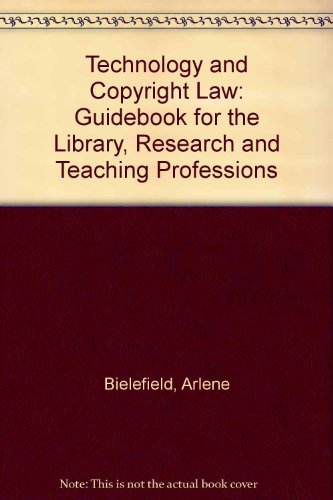Libraries and Librarians play an important role in educational institutions in regards to remaining compliant with copyright laws. As described in Section 108 of U.S. copyright law, libraries are granted some exceptions to the law in order to allow for a more free exchange of ideas and optimal learning environments. Some ways that libraries can assist faculty, staff, and students at an institution are as follows:
This section provides resources for further reading and context related to libraries and copyright law. Most librarians are not copyright experts, but are happy to work with faculty, staff, and students to navigate the copyright landscape with their research skills, professional frameworks, and general knowledge of copyright within a library setting.
 Technology and Copyright Law
by
Technology and Copyright Law
by
This guide provides an overview of the application of Section 108 of copyright law exceptions for libraries and archives. Includes FAQs including photocopying, lending, and course reserves.
This guide provides guidance for educators and librarians on fair use and photocopying under the purview of copyright law.
Not just for librarians, this guide provides an overview of where libraries and librarians fit into the realm of copyright.
This framework is referenced by librarians as they work with students and faculty through information literacy and research instruction. There are six concepts:
Best practices for libraries and electronic resources vendors when negotiating licensing agreements for access to works in vendor databases.
Copies of articles placed on reserve for a course should be reevaluated every semester. While one may be allowed to use an article for a single semester without obtaining permission, continuing to use the same articles every semester require permission from the copyright holder.
Using Content: Library Reserves - Copyright Clearance Center